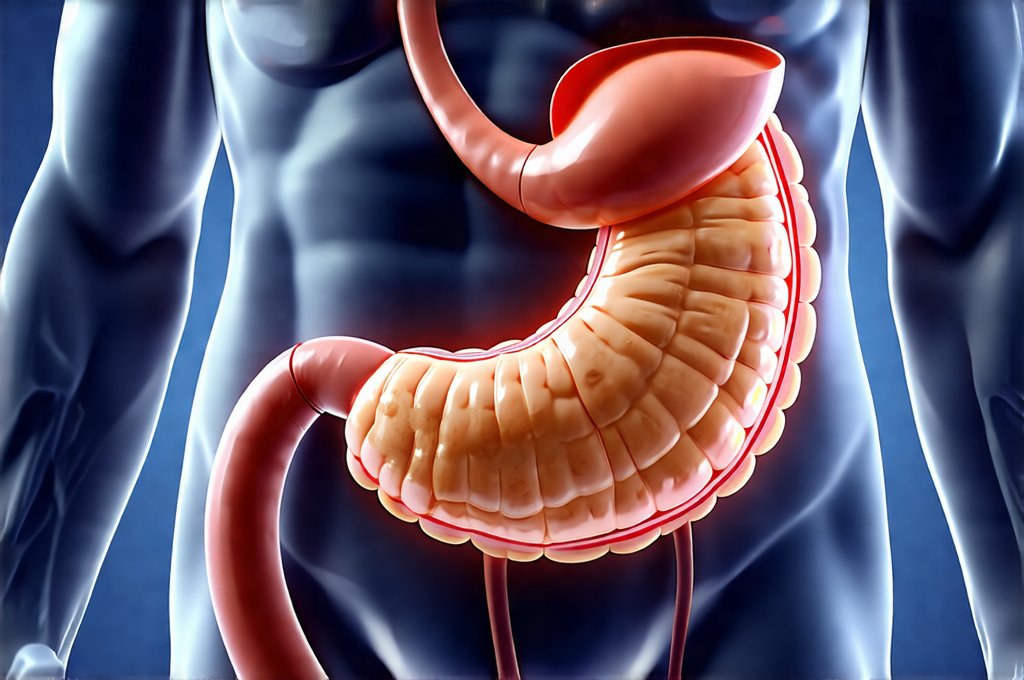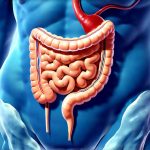Digestion is often taken for granted, happening quietly in the background while we focus on other aspects of our lives. Yet, it’s arguably one of the most fundamental processes supporting our overall well-being. When food isn’t broken down efficiently, it can lead to a cascade of uncomfortable symptoms – bloating, gas, fatigue, even impacting nutrient absorption and long-term health. Understanding how your stomach (and digestive system as a whole) is functioning allows you to proactively address potential issues and optimize your body’s ability to extract the nourishment it needs. This isn’t about self-diagnosing; it’s about becoming more attuned to your body’s signals and recognizing when something might be off, prompting conversation with healthcare professionals if needed.
The complexity of digestion often surprises people. It’s not simply a matter of swallowing food and waiting for it to disappear. A meticulously orchestrated series of mechanical and chemical processes unfolds, beginning in the mouth and continuing through the esophagus, stomach, small intestine, large intestine, and beyond. The stomach plays a crucial role as the initial major processing center, churning food into a liquid form (chyme) while mixing it with powerful digestive juices containing hydrochloric acid and enzymes like pepsin to begin protein breakdown. Assessing how well this foundational stage is occurring can provide valuable insights into your overall digestive health. This article will explore ways to monitor your digestion, focusing on observable symptoms, dietary adjustments, and mindful self-assessment techniques.
Recognizing the Signs of Impaired Digestion
Impaired digestion isn’t always dramatic; it often manifests as subtle but persistent discomfort. Bloating is a common indicator, occurring when gas builds up due to undigested food fermenting in the gut. This can be accompanied by excessive gas, belching, and abdominal distension. However, these symptoms are not specific to digestive issues and can have other causes, so context is essential. Another sign is experiencing feelings of fullness shortly after eating a small amount of food – a sensation known as early satiety. Conversely, some people may experience persistent hunger even after meals, suggesting inadequate nutrient absorption because the food isn’t being broken down effectively.
Beyond gastrointestinal symptoms, impaired digestion can also lead to systemic effects. Fatigue is frequently reported, stemming from the energy expenditure required to process poorly digested food and reduced nutrient uptake. Changes in bowel habits – either constipation or diarrhea – are also red flags. Constipation suggests slow transit time and potentially insufficient stomach acid for proper breakdown, while diarrhea could indicate rapid transit time due to malabsorption or gut irritation. It’s important not to ignore these signals; they’re your body’s way of communicating that something isn’t working as it should. If you are experiencing persistent bloating, consider reading how to tell if it’s lymphatic or digestive in origin.
Finally, the appearance of stool can offer clues. Ideally, stool should be well-formed and brown in color. Pale, bulky stools may indicate fat malabsorption, while dark, tarry stools could signify bleeding in the digestive tract (requiring immediate medical attention). Paying attention to these often-overlooked details can provide valuable information about your digestive process. Remember that everyone is different; what constitutes “normal” varies from person to person. If you are concerned about gas, it’s important to know if your gas is a sign of something more serious.
Dietary Strategies for Digestive Support
Diet plays a pivotal role in how well our stomachs break down food. A diet rich in processed foods, high in sugar, and low in fiber often puts excessive strain on the digestive system. Conversely, focusing on whole, unprocessed foods can significantly ease the burden. Increasing your intake of fiber-rich foods – fruits, vegetables, whole grains, legumes – promotes healthy gut motility and provides bulk to aid digestion. However, introduce fiber gradually to avoid exacerbating bloating or gas.
Another key strategy is prioritizing digestive enzymes. These naturally occurring proteins help break down food molecules into smaller, absorbable units. While our bodies produce their own enzymes, supplementing with a broad-spectrum digestive enzyme blend (containing amylase for carbohydrates, protease for protein, and lipase for fats) can be beneficial, especially when consuming complex meals or experiencing digestive discomfort. However, it’s important to consult with a healthcare professional before starting any new supplement regimen.
Hydration is also critical. Water helps soften stool, facilitating its passage through the digestive tract, and aids in the chemical reactions involved in digestion. Aim for at least eight glasses of water per day, adjusting based on your activity level and climate. Finally, mindful eating practices – chewing food thoroughly, eating slowly, and avoiding distractions – allow the stomach to prepare properly for incoming food, maximizing its ability to break it down efficiently.
Assessing Stomach Acid Production
One common issue contributing to impaired digestion is insufficient stomach acid (hypochlorhydria). While often associated with heartburn, low stomach acid can paradoxically cause digestive issues like bloating and gas because undigested food ferments in the gut. There’s a simple self-assessment test that, while not definitive, can offer some indication of your stomach acid levels:
- First thing in the morning, before eating or drinking anything, mix 1/2 teaspoon of baking soda with 6 ounces of water.
- Drink it quickly.
- Time how long it takes to burp. If you burp within a few minutes, it suggests adequate stomach acid production. If there’s no burping after 15-20 minutes, it could indicate low stomach acid levels.
Important Note: This test is not foolproof and should be interpreted with caution. It’s best to discuss concerns about low stomach acid with your doctor who can order more accurate testing if needed. Additionally, attempting to self-treat hypochlorhydria without professional guidance can be harmful. Understanding how acid affects your sinuses is also important for overall health.
Identifying Food Intolerances
Food intolerances are different from food allergies; they don’t involve an immune response but rather a difficulty digesting certain foods. Common culprits include lactose (in dairy), gluten (in wheat, barley, and rye), and fructose (in fruits). Identifying these intolerances can significantly improve digestive comfort. One method is the elimination diet, which involves removing suspected trigger foods from your diet for several weeks and then gradually reintroducing them one at a time to observe any symptoms.
- Keep a detailed food diary, recording everything you eat and drink along with any associated symptoms.
- Eliminate potential problem foods (dairy, gluten, soy, corn, etc.) for 2-3 weeks.
- Reintroduce each food individually, waiting several days between introductions to monitor for reactions.
If you suspect a severe food allergy, consult an allergist for proper testing and diagnosis. Food intolerances can be challenging to identify without guidance, so working with a registered dietitian or nutritionist is recommended. It’s also important to consider if your reflux could actually be linked to a food sensitivity.
The Role of Mindful Eating
Mindful eating isn’t just about what you eat; it’s about how you eat. In today’s fast-paced world, we often rush through meals, barely tasting our food before swallowing it whole. This puts a significant strain on the digestive system, which relies on adequate chewing to begin the breakdown process. Mindful eating involves:
- Sitting down in a calm and relaxed environment.
- Taking small bites and chewing thoroughly (aim for 20-30 chews per bite).
- Savoring each mouthful and paying attention to its texture, taste, and aroma.
- Avoiding distractions like phones or televisions.
- Eating when you’re genuinely hungry and stopping when you’re satisfied, not overly full.
Practicing mindful eating can improve digestion by reducing stress on the stomach, increasing enzyme production through saliva stimulation, and promoting a greater sense of awareness about your body’s hunger and fullness cues. It’s a simple yet powerful technique that can have a profound impact on your overall digestive health. Also consider what your stomach is trying to tell you through reflux symptoms. Finally, be aware of how alcohol-free drinks may still affect your stomach despite being alcohol free.


















